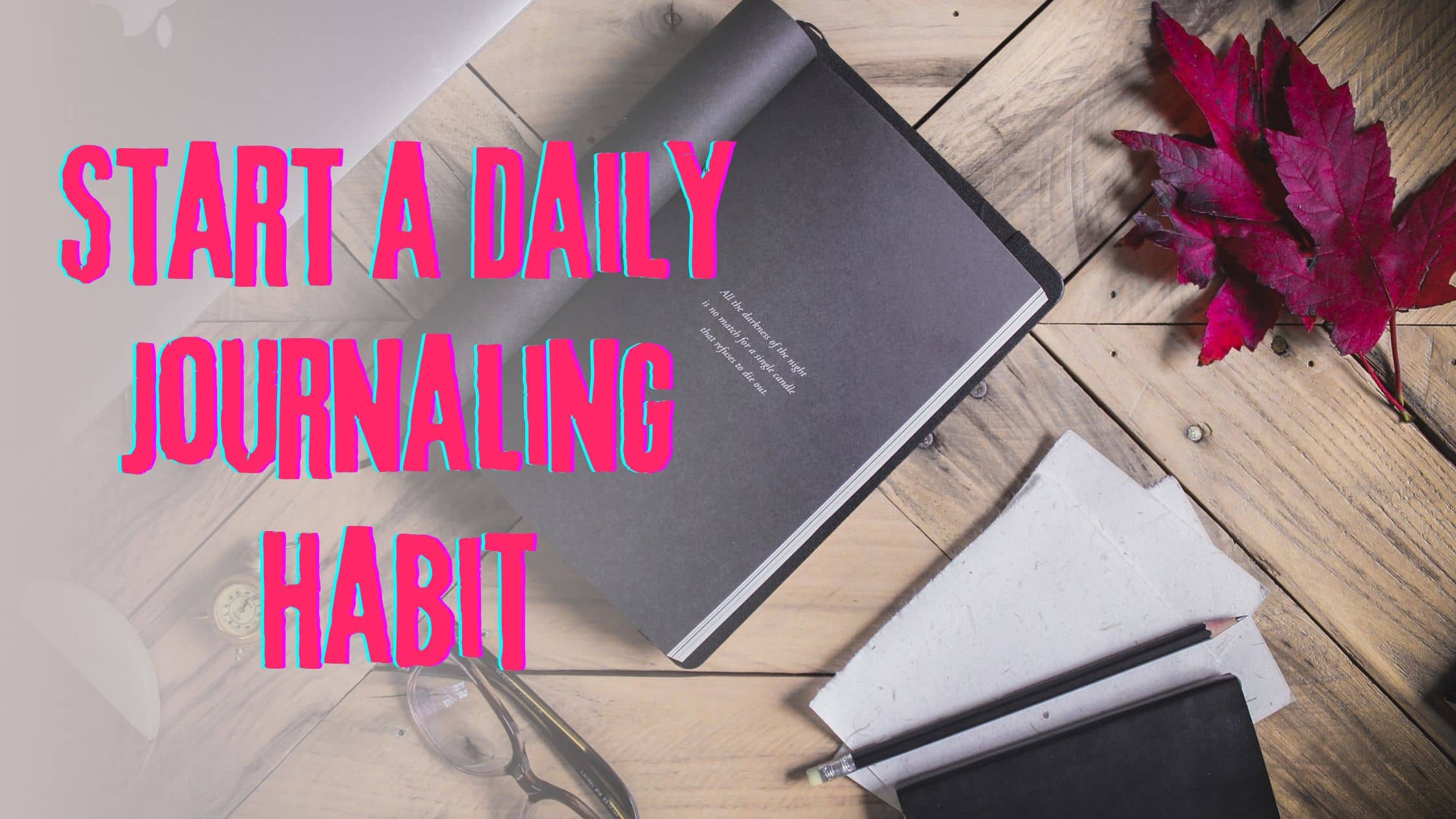Start a Daily Journaling Habit: Unleashing the Power of Your Pen.
In the whirlwind of our daily lives, finding moments of reflection can be a challenge. Yet, there’s a simple, powerful tool at your disposal – journaling. It’s more than just a way to record events; it’s a pathway to self-discovery, stress relief, and enhanced creativity. Let’s explore the art of journaling and how starting a daily habit can transform your life.
Start a Daily Journaling Habit
The Magic of Journaling
Why Journal?
Journaling is like having a personal therapist, career coach, and creative muse rolled into one. It allows you to process emotions, track progress, and clear your mind. Whether you’re navigating tough emotions, brainstorming ideas, or simply documenting your day, journaling provides a unique space for personal growth.
Getting Started: Setting Up Your Journaling Practice
Choosing Your Tools
Your journaling journey begins with choosing your tools. Whether it’s a classic notebook or a digital app, the key is to find something that resonates with you. Some prefer the tactile feel of pen and paper, while others opt for the convenience of digital platforms. Remember, there’s no right or wrong choice – it’s about what feels most natural and motivating for you.
Creating a Comfortable Space
Find a quiet, comfortable spot for your journaling. It could be a cozy corner of your room, a sunny spot on your porch, or a peaceful café. The goal is to create an environment that feels inviting and conducive to reflection.
Journaling Techniques to Enhance Your Practice
Freewriting: Let It Flow

Freewriting involves writing without pausing, editing, or censoring yourself. It’s a fantastic way to bypass your internal critic and tap into deeper thoughts and feelings. Try setting a timer for five to ten minutes and write whatever comes to mind.
Gratitude Journaling: Focus on the Positive

This practice can shift your focus from challenges and frustrations to appreciation and positivity. It’s a simple yet powerful way to cultivate a mindset of gratitude.
Prompted Journaling: Guided Exploration

If you find yourself staring at a blank page, use prompts to kickstart your writing. Prompts can be anything like “What’s a challenge I overcame recently?” They guide your thoughts and encourage exploration of different aspects of your life.
Making Journaling a Daily Habit
Set a Regular Time
Consistency is key in building any habit. Choose a time that works best for you – maybe it’s first thing in the morning, during your lunch break, or right before bed. The important part is making it a consistent part of your routine.
Keep It Manageable
Don’t overwhelm yourself with the expectation of writing pages each day. Even a few lines can be meaningful. The goal is to make journaling a manageable, enjoyable part of your day.
Use Reminders and Rewards
Set reminders to journal at your chosen time. And, why not reward yourself for sticking to your habit? Maybe a cup of your favorite coffee after a week of consistent journaling or a new pen or notebook after a month.
Overcoming Common Journaling Challenges
“I Don’t Know What to Write About”
This is where prompts can be incredibly helpful. Also, remember that your journal is a judgment-free zone. It’s okay if your entries are mundane or repetitive – the act of writing is what’s important.
“I’m Not a Good Writer”
Journaling is not about crafting perfect prose; it’s about honesty and self-expression. Your journal is for you and you alone. Don’t worry about grammar or style – just write.
“I Don’t Have Time”
We often think we need large blocks of time to journal, but even a few minutes can be valuable. Consider integrating journaling into activities you already do – jot down thoughts while having your morning coffee or during your commute.
The Transformative Power of Journaling
A Tool for Self-Discovery
Journaling offers a window into your inner world. Over time, you’ll start to notice patterns in your thoughts and feelings, providing insights into your behaviors and motivations.
Enhancing Creativity and Problem-Solving
Regular journaling can also boost creativity. By regularly engaging with your thoughts and ideas, you’re giving your creativity a workout, leading to more innovative thinking and effective problem-solving.
A Path to Emotional Wellness
Journaling is a powerful tool for emotional health. It can help you process and make sense of your emotions, leading to greater emotional resilience and a deeper sense of peace.
Start a Daily Journaling Habit.
Conclusion: Embrace the Journey
Embarking on a journaling journey is like starting a dialogue with yourself. It’s a practice that can bring clarity, creativity, and emotional wellness into your life. Remember, the key to successful journaling is making it a regular, enjoyable part of your routine.
So grab your pen, open your notebook, and start writing your way to a more mindful, fulfilled life. Happy journaling!











